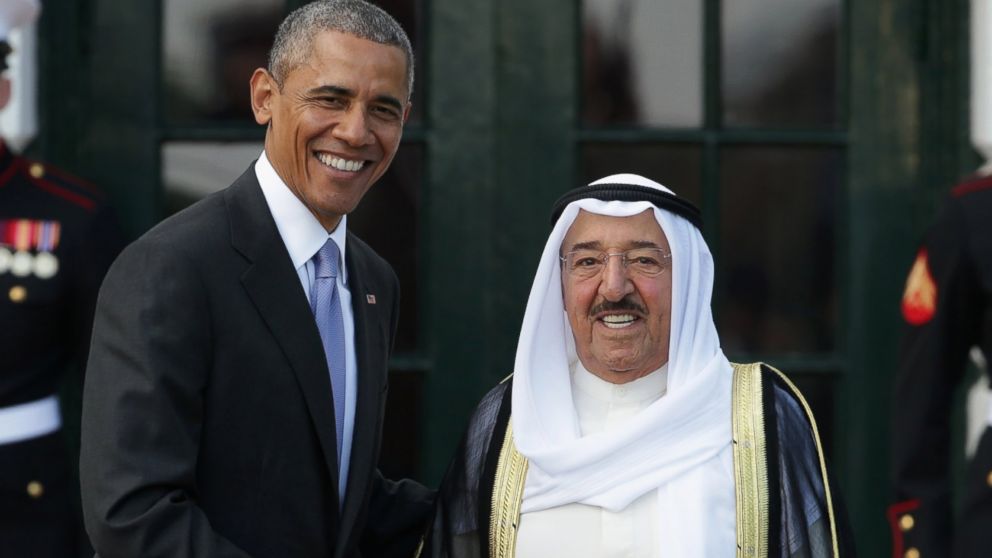Obama Set Goals Too High for Gulf Rebalance, Experts Say
Experts skeptical of meeting with Gulf leaders.

— -- The Obama administration is likely to fall far short of the lofty goals it set for itself at Thursday’s summit with Gulf leaders, several experts on the region said.
While the White House has framed the seven-nation meeting as an opportunity to deepen and strengthen Gulf nations’ security relationship with the United States in light of a possible nuclear deal with Iran, the six foreign leaders attending have set out bargaining chips that the administration has already shot down, and it’s not exactly clear what else, besides those tangible items, either side wants.
“There’s a very real prospect that this exercise could end up looking like the February Countering Violent Extremism summit,” Brian Katulis of the Center for American Progress, which is aligned with the Obama administration, said, referring to a 60-plus-country confab that issued a lengthy joint statement with few specifics.
“Something that actually offers a couple of news stories and visuals, but leaves the participants very much perplexed as to what comes next.”
The White House has already ruled out a formal mutual defense treaty, which several of the Gulf nations were advocating, and is also unlikely to approve Saudi Arabia’s request for F-35 Joint Strike Fighter jets.Even still, Deputy National Security Adviser Ben Rhodes laid out an ambitious, if ambiguous, agenda for the daylong meeting during a conference call with reporters Monday.
“The purpose of this meeting is to sit down with some of our key partners in the region and to review U.S. policy and GCC policies related to the situation in the region and to determine ways in which we can strengthen our partnership and our security cooperation going forward,” he said.
Many observers also have in their minds the goal set out by President Obama during a 2014 interview with the New Yorker, in which he laid out his vision for a “new equilibrium” in the region: “If we were able to get Iran to operate in a responsible fashion — not funding terrorist organizations, not trying to stir up sectarian discontent in other countries, and not developing a nuclear weapon — you could see an equilibrium developing between Sunni, or predominantly Sunni, Gulf states and Iran in which there’s competition, perhaps suspicion, but not an active or proxy warfare.”
But given the Gulf nations’ own tangles with Iran and its proxies - including Saudi Arabia fighting the Tehran-backed Houthi rebels in Yemen, and Qatar and the United Arab Emirates ending up on opposing sides of the fight for control of Libya – Katulis said it’s unlikely they can put all those regional concerns aside at the Camp David table.
“This is a fractious bunch, it’s one that actually feels insecure about their own regional and domestic environments, so they need reassurance in various forms,” he said.
David Andrew Weinberg of the hawkish think tank Foundation for the Defense of Democracies said the possible results from this summit were likely limited even more when several top Gulf leaders, most notably the Saudi King Salman bin Abdulaziz Al Saud and Bahraini King Hamad bin Isa Al Khalifa, decided not to attend and send deputies in their place.
“Now the administration has further justification to play down the sorts of things that it will be providing and I wouldn’t be surprised if this is much more of a technocratic summit than a new horizon in bilateral relations,” he said.
But others, including the Saudis, have argued that just because the titular heads of their nations are not attending doesn’t mean they are not taking the summit seriously, however limited its results may be.
A source familiar with the Camp David arrangements said the Saudi representatives - interior minister Crown Prince Mohammed bin Nayef and defense minister Deputy Crown Prince Mohammed bin Salman - were more than capable of handling these discussions in the place of the almost 80-year-old king.
“They’re the guys who are going to have the technical wherewithal to really understand and discuss directly the arms deal with Iran and regional security needs,” the source said.




